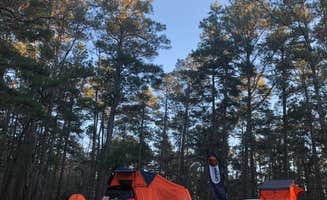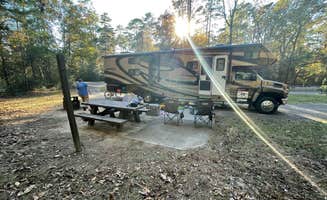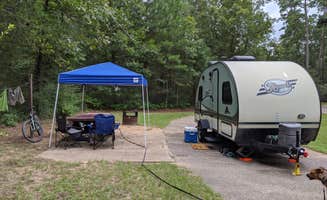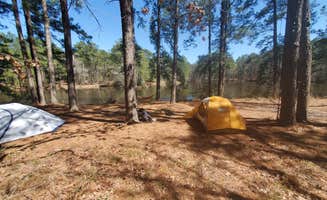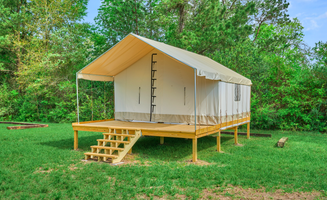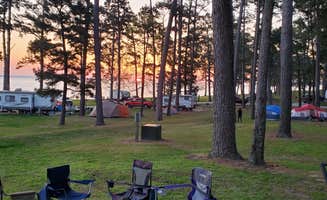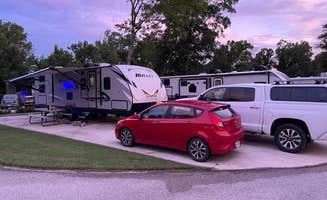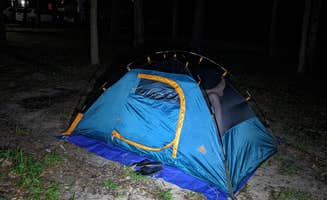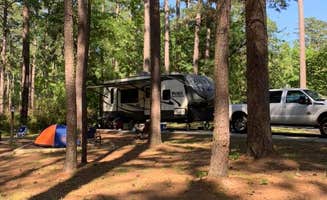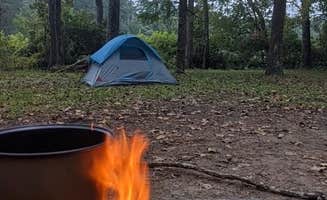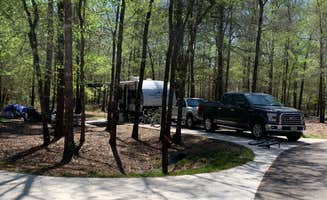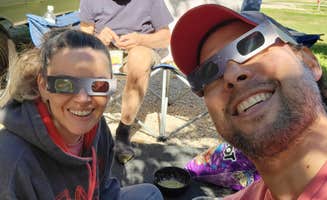Sam Houston National Forest offers diverse camping options across its 163,000 acres where east Texas piney woods meet small lakes and streams. The forest elevation ranges from 200 to 300 feet above sea level, creating a gently rolling landscape. Winter temperatures typically range from 40-60°F, making off-season camping viable for those seeking fewer crowds and easier reservations.
What to do
Lakeside swimming: Double Lake Recreation Area features a designated swimming area perfect for cooling off during hot months. "There is a swim area that is roped off, which looked inviting, though it was a little cold…" notes one visitor to Double Lake Recreation Area.
Paddling options: Lake Livingston State Park provides multiple water access points for kayaking, canoeing and paddleboarding. "You can have a horseback ride and steak dinner at the park for a reasonable fee and meet some interesting people. Swim in the lake, hike the trails, and kayak," shares a reviewer from Lake Livingston State Park.
Trail exploration: Hikers can access multiple interconnected paths from Lake Niederhoffer Campsite, including segments of the Lone Star Hiking Trail. "Miles upon miles of well-defined hiking trails. Campsites by the lake have a great view," explains a camper who visited this primitive camping area.
What campers like
Spacious campsites: Campers frequently mention the ample space between sites at Cagle Recreation Area. "Sites are very large, so social distancing is no problem. Cagle is one of my favorite places to camp!" shares one regular visitor to the area.
Lake access: Wolf Creek Park offers some of the best direct lake access in the region. "Sites have water and electricity and some have sewer hookups. There's a nice swimming area, playground and boat ramp with fuel for purchase. You can rent paddle boats, canoes and paddle boards," explains a reviewer from Wolf Creek Park.
Privacy options: For those seeking solitude, primitive sites offer true seclusion. "We were the only ones there. It was easy to find, quiet and safe," notes a camper who stayed at Shell Oil Road Hunter Camp, one of the free primitive camping areas available in the national forest.
What you should know
Site selection considerations: Many campgrounds have significant variations between sites. "Some sites seemed much larger than others and some were far more level than others, so checking out the sites before choosing one is a good idea," advises a visitor to Double Lake Recreation Area.
Water conditions: Lake clarity varies throughout the year. At Lake Niederhoffer, a camper reports: "The lake was clear and whether or not it was a good idea, we swam in it as did all our dogs. Great temperature water."
Weather preparation: East Texas humidity affects camping comfort significantly. "We came during the week so it wasn't crowded. This place is peaceful and beautiful. We will be back when it's not so hot," notes a Huntsville State Park visitor, highlighting the importance of timing your visit.
Tips for camping with families
Playground access: Multiple campgrounds offer dedicated play areas. "There's a nice swimming area, playground and boat ramp with fuel for purchase. You can rent paddle boats, canoes and paddle boards, play miniature golf and purchase basic supplies from the park store," explains a Wolf Creek Park visitor.
Kid-friendly trails: Look for loop trails with varied terrain. "The park has a great, huge lawn for a picnic and a game of frisbee. Check yourself for ticks after hiking the trails though. Its a thick forest," advises a Huntsville State Park camper.
Educational opportunities: Some parks offer nature programs. "Connected to the park store they had a small educational space for young kids with a functioning beehive. The kids (ages 2-6) loved it," shares a Lake Livingston visitor.
Tips from RVers
Leveling challenges: Many sites require significant leveling equipment. "Our site was sloped a bit so had to use 9 leveling blocks. The site is sloped front-to-back, but even with a long rig you should be fine," notes a camper from Huntsville State Park.
Full hookups: For those requiring all services, Thousand Trails Lake Conroe provides comprehensive options. "The campground is well laid out. Easy access to sites, amenities and the Lake. Although its a small portion of the lake on the campgrounds side, you do have access to boat rentals, a boat launch and plenty of parking."
Site selection process: Some campgrounds use a first-come, first-served system for specific sites. "The campground is huge, and you cannot reserve a specific site. You drive around and pick a site, then call and let them know which one you're in," explains a Thousand Trails Lake Conroe visitor.


